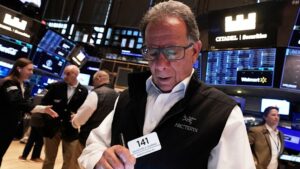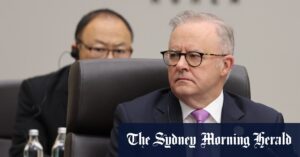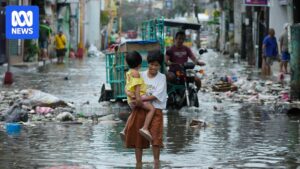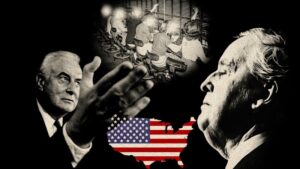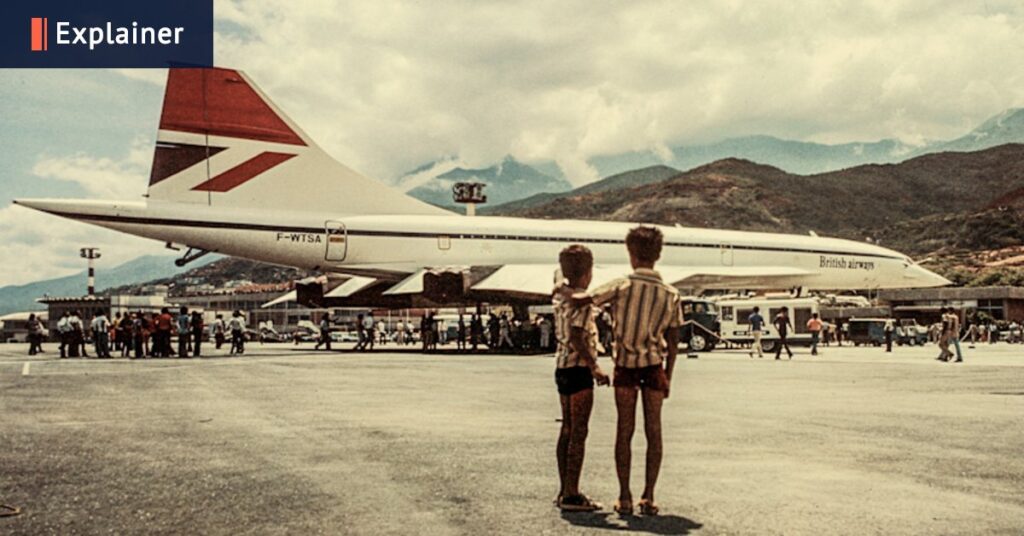
The United States has increased its military presence near Venezuela, raising questions about potential intervention and drawing comparisons to past US actions in Latin America. This buildup comes amid ongoing tensions between the Trump administration and the Venezuelan government led by President Nicolas Maduro. The situation has sparked debate over the true motivations behind the US’s actions and the potential consequences for the region.
Historically, Venezuela’s economic and political landscape has been shaped by the policies of former President Hugo Chavez, whose tenure was marked by significant social spending and nationalization efforts. Chavez’s “Bolivarian Revolution” aimed to improve living conditions through the redistribution of oil wealth, but structural economic issues persisted. According to Raul Sanchez-Urribarri, a political analyst, “Corruption and mismanagement persisted, even worsened,” which ultimately undermined the Chavista project.
The Legacy of Chavismo
Under Chavez, Venezuela saw the nationalization of over 1,000 companies and vast areas of agricultural land. This move deterred foreign investment and led to warnings of food shortages. Additionally, Chavez’s dismissal of thousands of employees from the state-run oil company PDVSA resulted in a significant decline in oil production. In 2023, Venezuela’s crude oil exports were a fraction of what they once were, highlighting the long-term impact of these policies.
The economic challenges were compounded by hyperinflation, crime, and poverty. The tragic murder of former Miss Venezuela Monica Spear in 2014 underscored the country’s deteriorating security situation. “The country’s democratic decay has been death by a thousand cuts,” says Sanchez-Urribarri, reflecting on the erosion of democratic institutions under Chavez and his successor, Maduro.
Maduro’s Controversial Reign
After Chavez’s death in 2013, Nicolas Maduro assumed the presidency, maintaining power through military support and control over the media and judiciary. His administration has faced accusations of electoral manipulation and human rights abuses. In recent years, the US has imposed economic sanctions on Venezuela, targeting individuals and entities involved in corruption and other illicit activities.
Despite these challenges, Maduro has managed to retain power, partly due to the support of key military figures. “He’s proven himself to be quite skilful and managed to hold on to power,” notes Rodrigo Acuna, a commentator on Venezuelan foreign policy. However, the country’s economic woes have led to widespread poverty and a mass exodus of citizens seeking better opportunities abroad.
US Interests and Strategic Moves
The Trump administration’s actions in the Caribbean have been officially framed as part of a broader effort to combat drug trafficking. However, experts like Acuna argue that Venezuela’s role in the drug trade is minimal compared to other countries in the region. “Venezuela plays a very small gateway [role] regarding narcotics into the United States,” he explains, suggesting that other motivations may be at play.
Some analysts believe that the US’s military presence is intended to pressure the Maduro regime or even facilitate a regime change. The Miami Herald has suggested that cutting off drug revenue to corrupt military leaders could undermine their support for Maduro. Additionally, the Trump administration’s focus on Venezuela may serve domestic political purposes, portraying Maduro as a “narco-terrorist” and rallying support against a perceived regional adversary.
“I’m not going to necessarily ask for a declaration of war. I think we’re just going to kill people that are bringing drugs into our country.” – US President Donald Trump
Historical Parallels and Future Implications
The current situation in Venezuela evokes memories of past US interventions in Latin America, such as the invasion of Panama in 1989. These historical precedents highlight the potential risks and consequences of military action. “The Venezuelans have got enough weaponry to provide some level of resistance, at least for a few days or a few weeks,” warns Acuna, suggesting that any intervention could lead to significant conflict.
As tensions continue to rise, the international community watches closely. Maduro has reportedly reached out to the US in an attempt to de-escalate the situation, but it remains unclear how the Trump administration will respond. The outcome of this geopolitical standoff could have far-reaching implications for the region and beyond.
In the coming months, the world will be watching to see whether diplomatic efforts can prevail or if the situation will escalate further. The stakes are high, and the potential for conflict looms large as both nations navigate this complex and volatile landscape.

